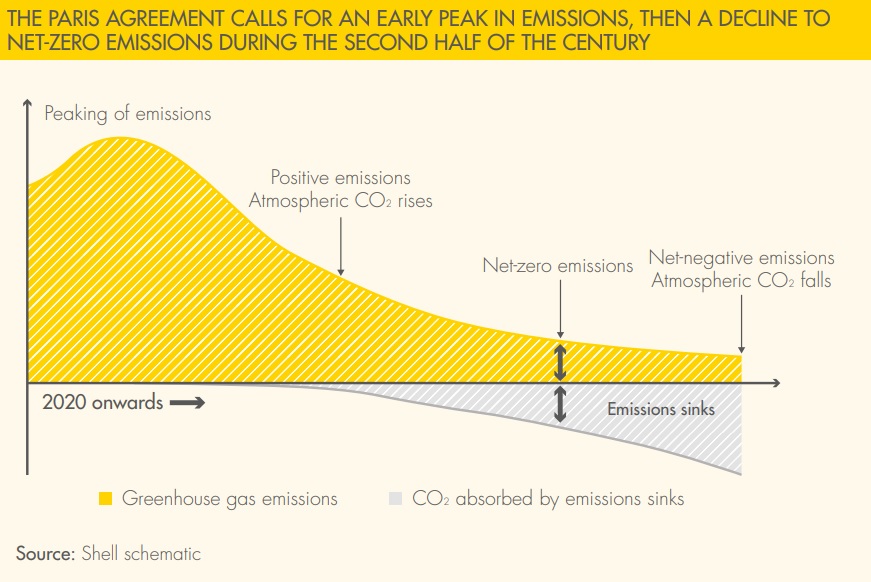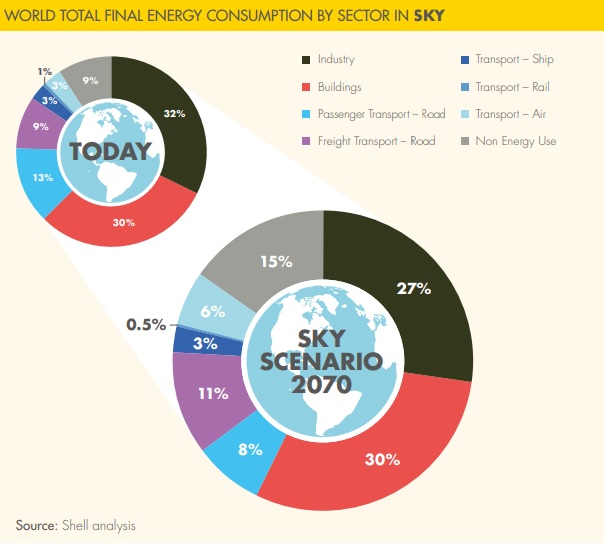On Monday, oil major Royal Dutch Shell unveiled a scenario which finds zero emissions world by 2070, outlining what the company believes to be a technologically, industrially, and economically possible route forward, consistent with limiting the global average temperature rise to well below 2°C from pre-industrial levels.
Climate change is a major challenge for the planet which governments try to address through Paris Agreement. The Sky Scenario illustrates a technically possible, but challenging pathway for the world to achieve the goals of the Paris Agreement. Namely, it reveals the potential for an energy system to emerge that brings modern energy to all in the world, without delivering a climate legacy that society cannot readily adapt to.
The Sky Scenario relies on a complex combination of mutually reinforcing actions by society, markets and governments. It recognises that the necessary changes will unfold at different paces in different places, and must ultimately transform all sectors of economic activity. The changes are economy-wide, sector-specific, and amount to re-wiring the global economy in just 50 years.

Sky Scenario: From now to 2070 –
- A change in consumer mindset means that people preferentially choose low-carbon, high-efficiency options to meet their energy service needs.
- A step-change in the efficiency of energy use leads to gains above historical trends.
- Carbon-pricing mechanisms are adopted by governments globally over the 2020s, leading to a meaningful cost of CO2 embedded within consumer goods and services.
- The rate of electrification of final energy more than triples, with global electricity generation reaching a level nearly five times today’s level.
- New energy sources grow up to fifty-fold, with primary energy from renewables eclipsing fossil fuels in the 2050s.
- Some 10,000 large carbon capture and storage facilities are built, compared to fewer than 50 in operation in 2020.
- Net-zero deforestation is achieved. In addition, an area the size of Brazil being reforested offers the possibility of limiting warming to 1.5°C, the ultimate ambition of the Paris Agreement.

As one of the world’s largest oil companies, Shell produced 3.7 million barrels of oil equivalent per day in 2017. The company has no large-scale hydrogen production, but is a major player in natural gas, which can produce hydrogen. Its first hydrogen refueling facility opened in UK last year.
Explore more herebelow:





























































